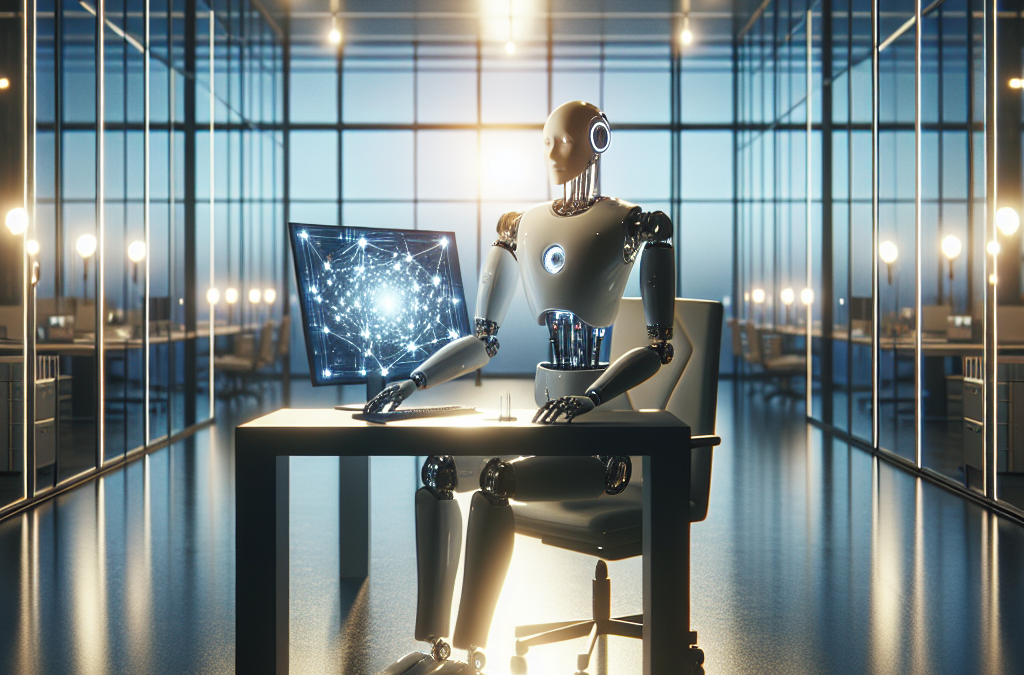Key Highlights
- AI is transforming industries, leading to the automation of certain jobs and the creation of new ones.
- Adaptability, continuous learning, and technical skills are becoming increasingly vital for professionals.
- Ethical considerations surrounding AI, such as bias in algorithms and data privacy, require careful consideration.
- Individuals and organizations must adapt and embrace AI to remain competitive in the evolving job market.
- The future of work will involve collaboration between humans and AI, necessitating a blend of technical and soft skills.
Introduction
Artificial intelligence (AI) is not just a thing of the future; it is changing the way we work today, particularly with the rise of the internet. As AI technology grows, it is quickly affecting the job market. This means it is creating new jobs while also removing some existing ones in different industries. It is important for workers in all types of jobs to know how AI and the internet are changing their fields. They should also learn what skills are needed to succeed in this new work environment.
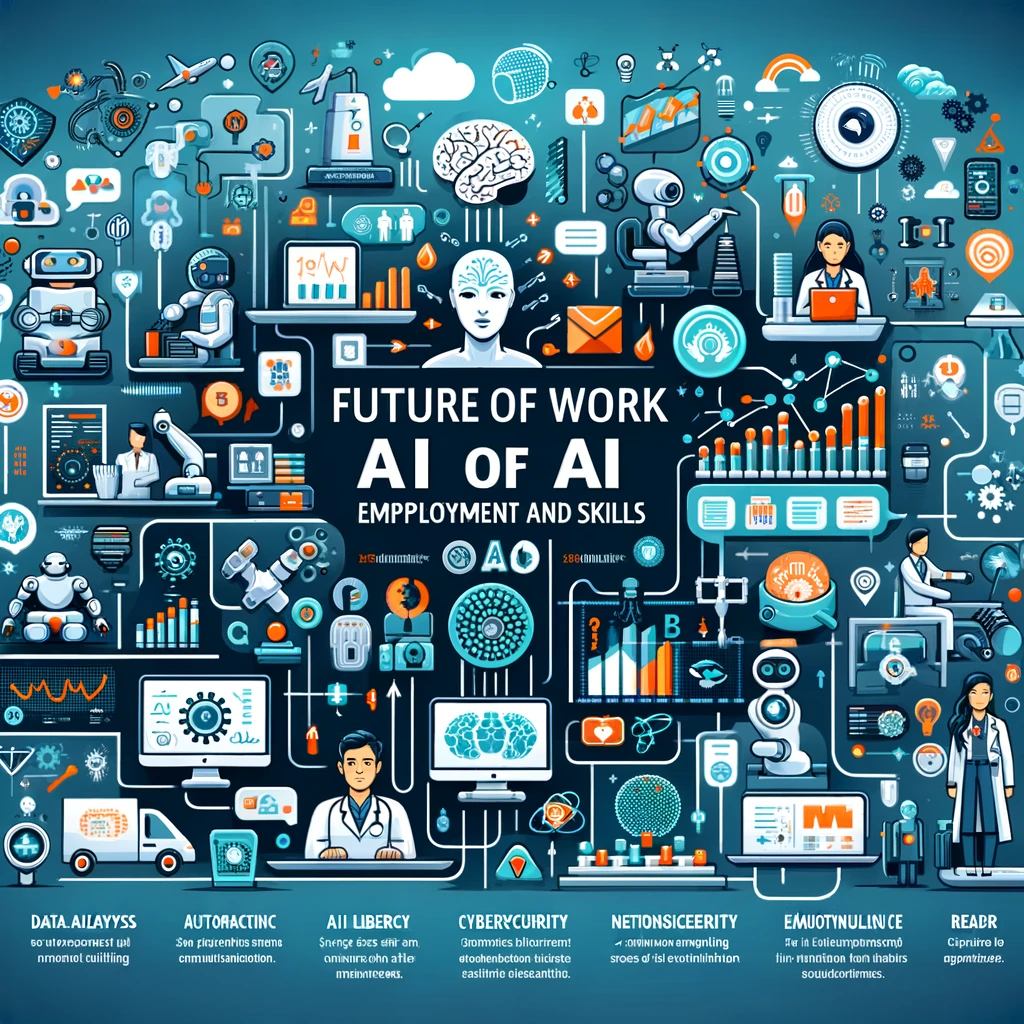
Exploring How AI Is Shaping the Future of Work
AI is becoming a big part of many industries, as highlighted by the New York Times. It is changing how we work and which skills are needed. This shift is not just about doing tasks faster; it is altering the way many jobs are done. From healthcare to finance, AI is changing old methods and opening up new chances.
As we look into these changes, we need to understand both the problems and the opportunities that AI offers. The future of work will require humans and AI to work together. According to recent statistics, AI is projected to contribute $15.7 trillion to the global economy by 2030. This massive economic impact underscores the transformative potential of AI across various sectors. Furthermore, 77% of devices being used have some form of AI, indicating its widespread integration into our daily lives and work environments.
1. The Rise of Automation in Manufacturing
Automation in manufacturing is not new, but now AI is taking it further. AI robots and systems can do complex tasks accurately and quickly. This increases productivity, but it may also lead to layoffs and job loss in some areas. This change is similar to what happened during the Industrial Revolution and is changing factories and supply chains around the world.
While AI can replace some jobs, it is also making new jobs available. There is a growing need for workers skilled in maintaining, programming, and overseeing AI systems. Companies want experts who can manage and improve these automated systems. By 2025, AI might eliminate 85 million jobs but create 97 million new ones, resulting in a net gain of 12 million jobs.
This move toward automation shows how important it is to reskill and upskill workers. This allows them to transition into jobs that work well with AI technologies.
2. AI-Driven Analytics in Market Research
Generative AI is quickly changing how we do market research. Data scientists are using AI tools to look at large sets of information. They can find patterns and gain insights that were hard to get before. This change leads to better market predictions, quicker decision-making, and better marketing plans.
Here are some ways AI is changing market research:
- Predictive Analytics: AI can look at past buying habits to guess future trends and needs.
- Customer Segmentation: AI helps group customers into specific sets based on age, behavior, and likes. This helps create more personal marketing efforts.
- Sentiment Analysis: AI can check social media posts, reviews, and other text to understand how people feel about a brand or product.
As AI keeps improving, it will play an even bigger role in market research. This will offer new chances for data scientists and marketing experts. 63% of organizations intend to adopt AI globally within the next three years, indicating a rapid growth in AI implementation across various industries, including market research.
3. Virtual Assistants in Customer Service
AI technology is improving customer service by using advanced chatbots. These virtual assistants can talk to customers, answer common questions, and offer quick help. This allows human agents to work on more complicated problems.
Chatbots are getting smarter. They use natural language processing to understand and talk back to customer requests in a friendly way. This makes the customer experience better by giving fast and efficient support.
Even though AI technology is taking over some parts of customer service, it doesn’t mean we don’t need human interaction anymore. The human touch is still very important for building relationships, dealing with tricky issues, and giving emotional support.
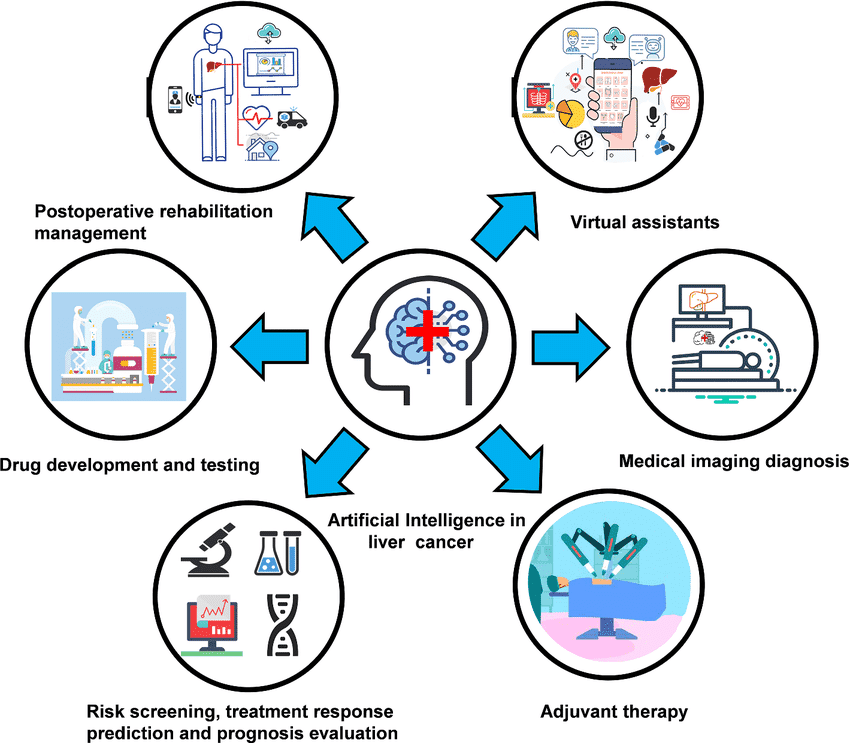
4. AI in Healthcare Diagnostics and Treatment Planning
AI is changing healthcare for the better, especially in diagnosing and creating treatment plans. AI systems can look at medical images like X-rays and MRIs. They do this more accurately than people can. This helps doctors find diseases sooner.
Finding problems early means quicker diagnoses. It also helps create treatment plans that fit each patient better. AI can study a patient’s history, genes, and lifestyle to suggest the best treatment for them. The global AI in healthcare market is expected to reach $194.4 billion by 2030, growing at a CAGR of 38.4%. Additionally, AI-powered diagnostic tools have shown the ability to detect diseases with up to 99% accuracy in some cases, demonstrating the potential for improved patient outcomes.
Putting AI in healthcare can really help improve how patients do, make the process faster, and lead to new ideas in medical research.
5. The Transformation of Financial Services Through AI
The financial services industry is changing a lot, mainly because of AI. AI helps automate tasks like spotting fraud, assessing risks, and running trades. This makes financial processes quicker, more accurate, and reduces human mistakes.
Because of this automation, new tech jobs are coming up in areas like AI development, data science, and cybersecurity. These jobs help manage and support these advanced systems.
Financial companies are using AI more to improve customer experiences. They want to personalize money advice and make operations smoother. This has led to a growing need for people who are skilled in both finance and AI. AI is expected to save the banking industry $447 billion by 2023, with 70% of financial services firms using machine learning to predict cash flow events, fine-tune credit scores and detect fraud.
6. AI’s Role in Educational Platforms and E-Learning
AI is changing education by supporting new e-learning platforms and custom learning experiences. Machine learning can look at how students learn. It can find their strengths and weaknesses, giving them tailored content and personal feedback. The global AI in education market is projected to reach $25.7 billion by 2030, growing at a CAGR of 32.9%. Furthermore, 47% of learning management tools will be enabled with AI capabilities in the next three years.
Education platforms are using AI to set up learning environments that change according to each student’s speed and style, which helps them stay engaged and remember more.
Plus, AI chatbots can be like virtual tutors. They can give quick help and answer questions, making learning easier and more convenient for students.
7. Smart Agriculture: AI in Farm Management and Crop Monitoring
AI is changing farming and creating what we call ‘smart agriculture.’ AI sensors and drones can check on crops, soil health, and weather. They give farmers real-time information. This helps them decide when to water, add fertilizer, or harvest their crops.
This method, known as precision farming, makes sure resources are used wisely. It cuts down on waste and helps increase crop production. This is good for making the food service industry more efficient and sustainable.
As AI develops, it is expected to play a bigger role in solving global food security issues. This growth will open up new chances for farmers with skills in data analysis and AI technology.
8. AI in Creative Industries: From Design to Content Creation
Generative AI is changing how we see creativity in humans and machines. Content creators in fields like advertising, music, and film use AI tools to help them come up with ideas, save time on repeated tasks, and improve their creative work.
For example, AI can create music, help write scripts, and make realistic visual effects.
Some worry that AI might take over human creativity. However, many believe that AI is a tool that can add to and improve human creativity, rather than take it away entirely in creative industries.
9. Cybersecurity Enhancements Powered by AI
The world of cybersecurity is changing fast thanks to AI. AI systems can look through large amounts of data to find and react to cyber threats quickly. They can spot unusual activities or patterns that could show harmful actions.
AI is also great at learning and adjusting, which makes it very useful in fighting complex cyber attacks. Machine learning can help find new threats and improve protections, keeping our data safer.
As cyber threats get tougher, AI will play a bigger role in cybersecurity. This will create a need for skilled workers who can work with AI systems and solutions.
10. The Evolution of Transportation and Logistics Through AI
The transportation and logistics industry is about to change a lot because of AI technology. Big companies are working on self-driving vehicles that use AI. These vehicles promise to make transportation safer, cheaper, and more efficient.
AI is also helping logistics by using data. It improves route planning, manages warehouse automation, and tracks shipments as they move around the world. This makes moving goods easier and faster.
These changes are opening new job opportunities in areas like autonomous vehicle engineering, logistics management, and AI-powered transportation systems.
The Skills You Need to Thrive in an AI-Integrated Workplace
The use of AI in the workplace is changing the skills required for success. Having technical skills is still important, but it is not enough anymore. Being adaptable, thinking critically, and being committed to learning throughout your life are now much more important.
As AI handles routine tasks, workers should concentrate on skills that need human judgment, creativity, and emotional intelligence.
Adaptability and Continuous Learning
In today’s fast-changing job market, being flexible and always learning is very important. Technology, especially AI, is moving quickly. This means workers need to have a growth mindset. They should be ready to learn new skills and improve their current ones during their careers. According to a recent survey, 77% of workers believe that continuous learning is essential for career success in the age of AI.
To do this, it’s vital to pay attention to industry trends. People should welcome new technologies and look for ways to grow their knowledge.
Those who are adaptable and focused on continuous learning will find it easier to handle changes in the labor market. They will also be able to take advantage of new chances that AI offers.
Technical Skills for Managing AI Tools and Applications
As more industries use AI tools, there is a growing need for people with skills to manage and develop these systems. New jobs are appearing in areas like AI engineering, data science, machine learning, and robotics.
It’s not enough to just know how to use AI. You also need to be able to develop, train, and improve these systems for different needs.
To do this, you should have a good understanding of math, computer science, and data analysis. You also need to solve tough problems and think clearly about what AI can and can’t do.
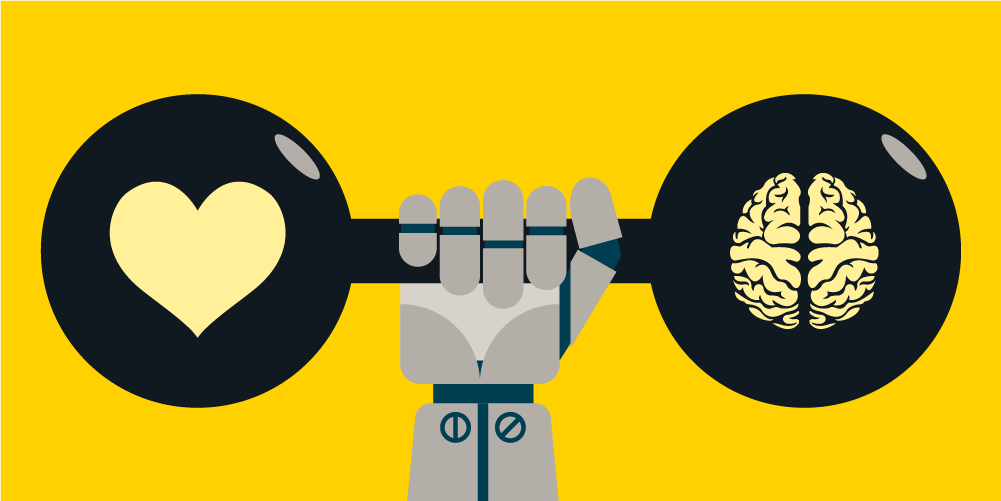
Emotional Intelligence in the Age of Machines
While technical skills are important, soft skills are very necessary too. Emotional intelligence is very important in the age of AI. It means being able to understand and manage your own feelings. It also means recognizing and connecting with other people’s feelings and managing social situations well. Research shows that 80% of executives believe emotional intelligence will be a critical skill in the AI-integrated workplace.
As AI takes over routine tasks, workers will depend more on skills like talking, working together, and showing compassion.
Building emotional intelligence is key to creating strong connections, leading teams, and giving great customer service. These are areas where human touch will always matter.
Creative Problem-Solving and Innovation
Innovation and creative problem-solving are very important skills in the AI-driven workplace. As AI takes care of everyday tasks, it is essential to think critically. You need to find problems and come up with new solutions to stay ahead. A recent study found that 85% of professionals consider creative thinking crucial for problem-solving in their work.
You need a mix of creativity and analytical thinking. You should also connect different ideas. Use AI as a tool to help you explore and innovate, not just as a way to replace human talent.
It is crucial for people and organizations to develop new skills that work well with AI’s abilities. This will help them succeed in a world that is always changing.
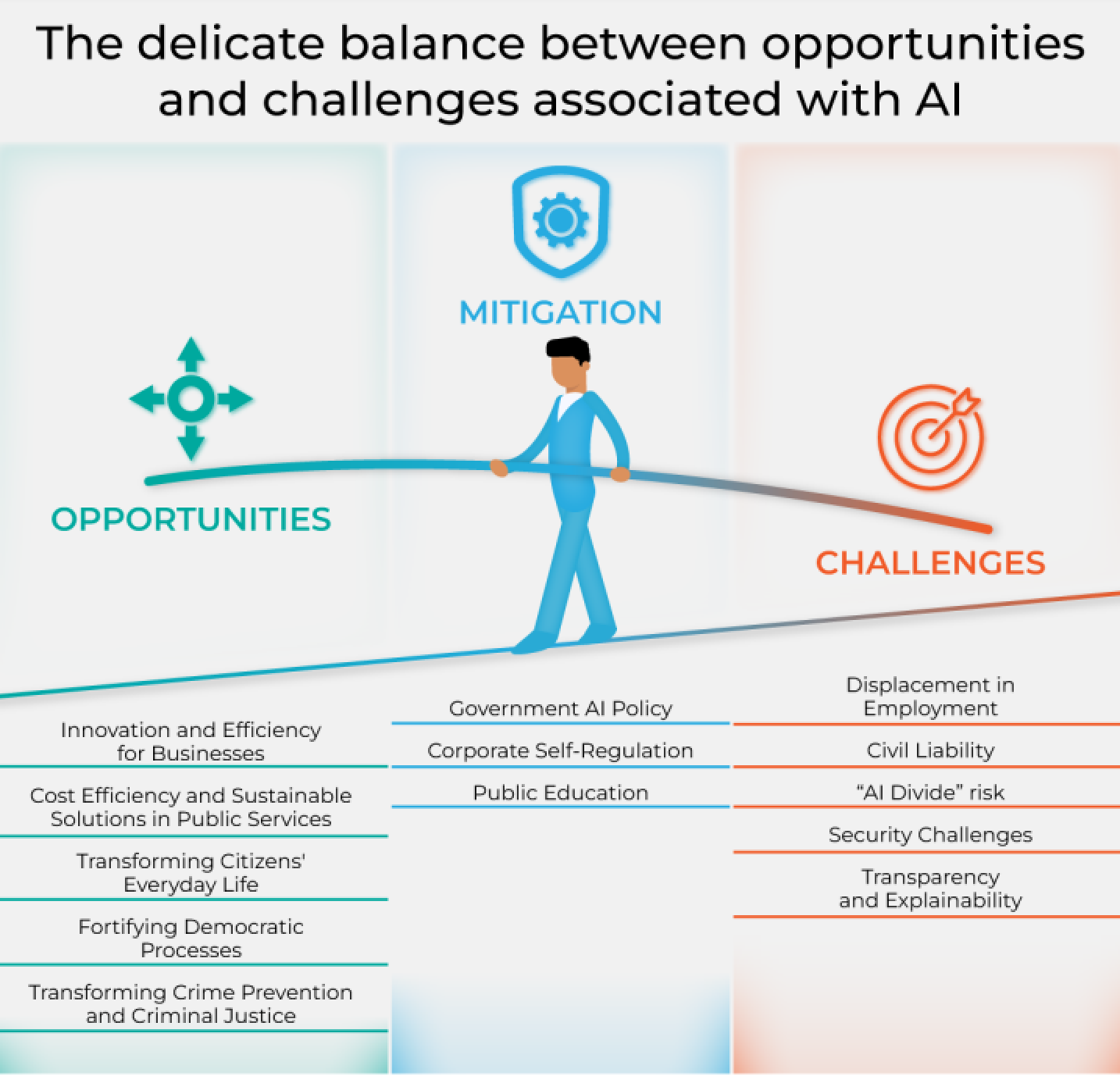
Navigating the Ethical Implications of AI in Work
The growing use of AI at work brings up important ethical issues. We need to think about bias in AI systems, data privacy, and the need for clear AI processes. These are just some of the problems we need to tackle.
For AI to be used responsibly, we must carefully consider how it can affect people, society, and the future of work.
Addressing Bias and Fairness in AI Algorithms
AI algorithms may look objective, but they can keep old societal biases alive if they are not developed and trained carefully. Bias in AI can result in unfair treatment, especially in hiring, loan approvals, and even the justice system. Research has shown that AI-powered diagnostic tools have demonstrated the ability to detect diseases with up to 99% accuracy in some cases.
To make AI systems fair, we need teams of developers from different backgrounds, thorough testing, and regular checks to spot and reduce bias.
It’s important to set clear rules and guidelines for AI development. This will help avoid unintentional problems and make sure that AI systems are used fairly and responsibly.
Privacy Concerns and Data Protection Strategies
AI systems depend a lot on data, which brings up real privacy issues. The way personal data is collected, stored, and used for AI training and development must be done responsibly and ethically.
Organizations should make data protection a priority. They need to follow privacy rules and get permission from people before collecting data.
Being clear about how data is used and protecting sensitive information is key. This helps build trust and makes sure AI is developed in a responsible way. By 2025, it’s projected that 95% of customer interactions will be powered by AI, with chatbots handling 85% of customer service interactions.
The Importance of Transparent AI Systems
As AI systems become more complex, understanding how they make decisions is critical. Transparent AI is crucial for building trust, ensuring accountability, and enabling humans to understand and interpret the reasoning behind AI-driven decisions.
Tech companies and developers need to find ways to make AI systems more interpretable, providing insights into the factors that influence their outputs.
Here are key reasons why transparent AI is important:
|
Reason |
Description |
|
Accountability |
Determining who is responsible for errors or biases in AI systems. |
|
Trust |
Building confidence in the decisions made by AI systems. |
|
Fairness |
Ensuring that AI systems are not discriminatory and treat individuals equitably. |
|
Explainability |
Providing clear explanations for AI-driven decisions, particularly in sensitive areas. |
Promoting transparent AI practices is essential for the ethical development and deployment of AI, fostering trust between humans and machines.
Conclusion
In conclusion, the effect of AI on the future of work is deep and many-sided. AI is changing many areas, like automation in manufacturing, smart analytics in market research, and virtual assistants in customer service. To succeed in this new workplace with AI, people need to be adaptable. They should also have technical skills to use AI tools, emotional intelligence, and the ability to solve problems creatively. It is also important to think about the ethical issues with AI, such as bias in algorithms, data safety, and being clear about how AI systems work. Addressing these issues is key for a good and responsible use of AI in the workforce. By welcoming these changes, we will have a future of work that is more efficient, innovative, and inclusive.
References
https://www.mckinsey.com/mgi/our-research/generative-ai-and-the-future-of-work-in-america
https://www.nytimes.com/2023/05/04/briefing/white-house-ai-leaders-proud-boys-trial.html
https://www.nytimes.com/2023/05/01/technology/ai-google-chatbot-engineer-quits-hinton.html
https://www.cnbc.com/2023/08/10/how-ai-can-help-create-jobs-for-humans-not-just-automate-them.html
https://archive.nytimes.com/www.nytimes.com/interactive/2013/08/17/us/detroit-decline.html

